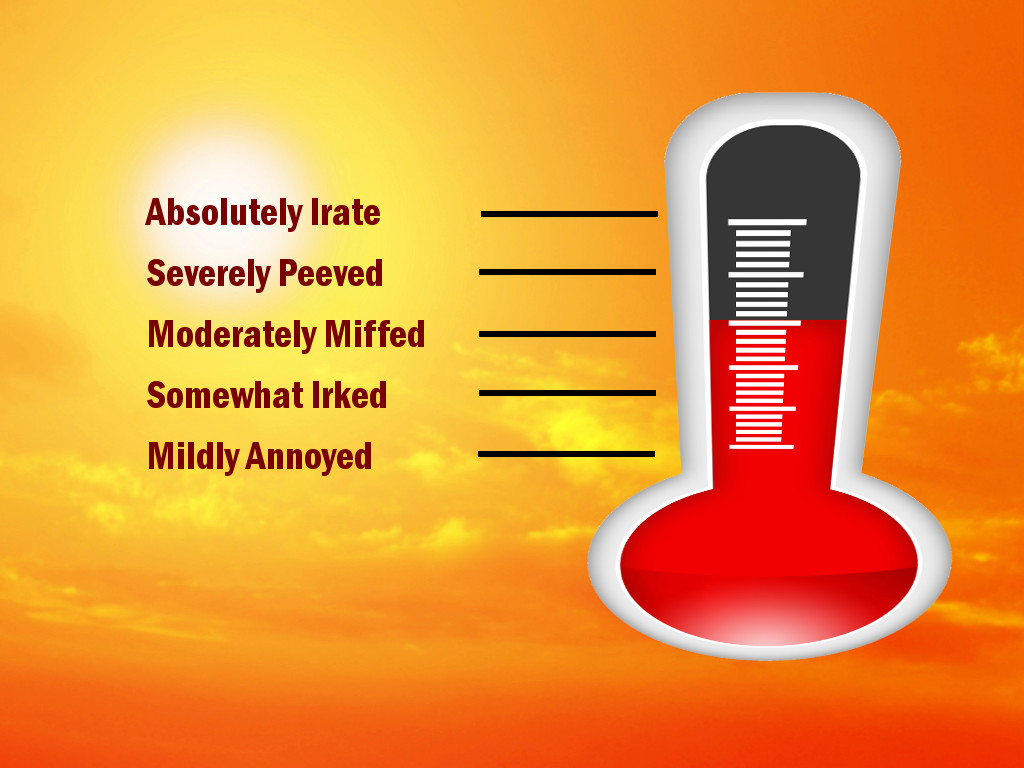“It wouldn’t be so bit if it were a dry heat. It’s the humidity that does it.”
The only thing more annoying than a rhetorical complaint is an unwarranted response according to Social Ventures researcher, Jackie Marzden. While designing a new ‘annoy-o-meter’ for their social science research, they developed a system to test it, and came up with various scenarios that people find annoying.
“It’s very difficult to quantify how annoying someone or something is. Quite often the results are skewed depending on the environment, context, people and situations. For example, someone clicking their nails abstractedly might not bother someone on any other day but, given that they recently gave up smoking, their response can be overwhelming,” she says, “The scale is logarithmic in nature, which comes as no surprise. The real challenge lies in getting test subjects to feel annoyance.”
Jackie says that social niceties and politeness masks the true level of irritation a person feels. To mitigate these factors, her team lets the participants score their annoyance anonymously. The early results are interesting.
“The overall level of irritation is like a leaky bucket. The more refreshed, relaxed and comfortable a person is, the holes are in the bucket to allow irritation to dissapate. If someone is sleep deprived, undergoing major stresses or in an unfamiliar environment, their irritability increases exponentially, despite what their outward disposition is like.”
More than this, her team showed that annoying factors have a compounding effect and that ‘irritant-combos’ are exponentially more effective at annoying a subject than any single source of irritation.
Jackie explains, “We found that even the most severe irritants, such as being sneezed upon, scored a less than a combination of lesser irritants. For example and unhelpful complaint, such as those about the weather, scored about a 1 on our ire-scale, while an unhelpful response to that complaint drew an ire of 3, which is 100 times more annoying than the original irritation.”


